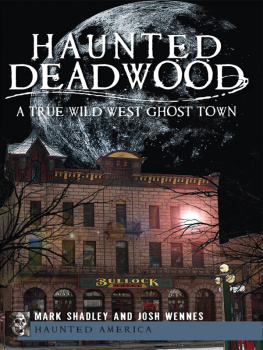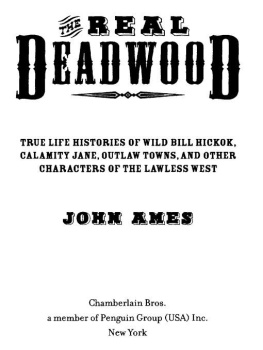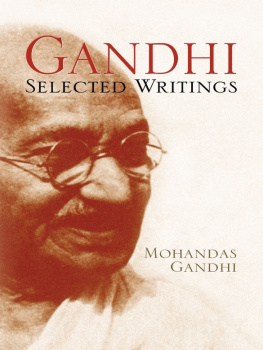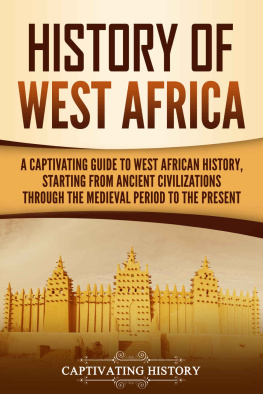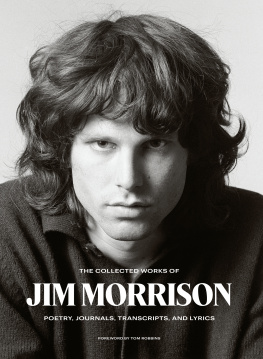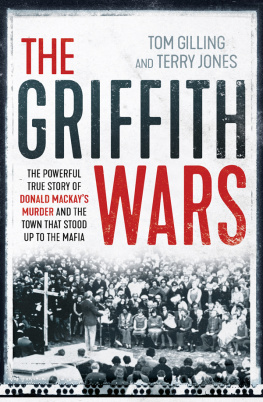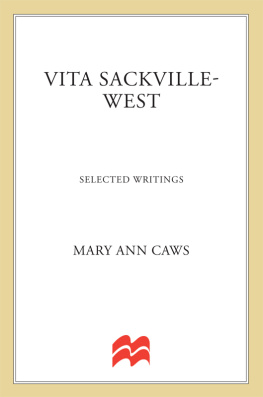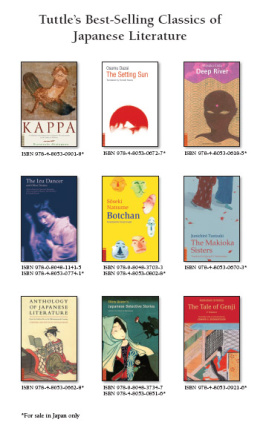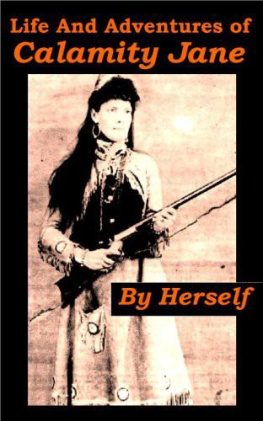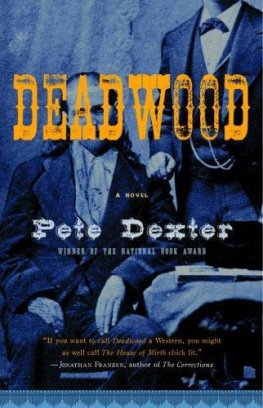T. D. Griffith - Deadwood: The Best Writings on the Most Notorious Town in the West
Here you can read online T. D. Griffith - Deadwood: The Best Writings on the Most Notorious Town in the West full text of the book (entire story) in english for free. Download pdf and epub, get meaning, cover and reviews about this ebook. year: 2009, publisher: TwoDot, genre: Detective and thriller. Description of the work, (preface) as well as reviews are available. Best literature library LitArk.com created for fans of good reading and offers a wide selection of genres:
Romance novel
Science fiction
Adventure
Detective
Science
History
Home and family
Prose
Art
Politics
Computer
Non-fiction
Religion
Business
Children
Humor
Choose a favorite category and find really read worthwhile books. Enjoy immersion in the world of imagination, feel the emotions of the characters or learn something new for yourself, make an fascinating discovery.

- Book:Deadwood: The Best Writings on the Most Notorious Town in the West
- Author:
- Publisher:TwoDot
- Genre:
- Year:2009
- Rating:4 / 5
- Favourites:Add to favourites
- Your mark:
- 80
- 1
- 2
- 3
- 4
- 5
Deadwood: The Best Writings on the Most Notorious Town in the West: summary, description and annotation
We offer to read an annotation, description, summary or preface (depends on what the author of the book "Deadwood: The Best Writings on the Most Notorious Town in the West" wrote himself). If you haven't found the necessary information about the book — write in the comments, we will try to find it.
An anthology of the most captivating writings about the wildest town in the West, including excerpts from novels, period newspaper articles, biographies and even song lyrics.
T. D. Griffith: author's other books
Who wrote Deadwood: The Best Writings on the Most Notorious Town in the West? Find out the surname, the name of the author of the book and a list of all author's works by series.
Deadwood: The Best Writings on the Most Notorious Town in the West — read online for free the complete book (whole text) full work
Below is the text of the book, divided by pages. System saving the place of the last page read, allows you to conveniently read the book "Deadwood: The Best Writings on the Most Notorious Town in the West" online for free, without having to search again every time where you left off. Put a bookmark, and you can go to the page where you finished reading at any time.
Font size:
Interval:
Bookmark:
Tom Griffith is a fourth-generation South Dakotan who studied literature and drama at the University of London before graduating with a degree in journalism from the University of WisconsinEau Claire. After working as a reporter, photographer, and managing editor at newspapers in Montana, Arizona, and South Dakota, Griffith helped launch the Mount Rushmore Preservation Fund, a nationwide campaign that raised $25 million to preserve, enhance, and interpret the mountain memorial.
Griffith has written or coauthored fifty books, including The Globe Pequot Presss Insiders Guide to South Dakotas Black Hills & Badlands and Outlaw Tales of South Dakota, as well as Americas Shrine of Democracy with a foreword by President Ronald Reagan, A Winning Tradition with a foreword by NBCs Tom Brokaw, and South Dakota, a comprehensive guide to the state. Griffiths travel features and photography have appeared in numerous magazines and newspapers from New Zealand to New York. A member of the Society of American Travel Writers and Western Writers of America, Griffith lives and writes in the highest reaches of South Dakotas fabled Black Hills.
Any topic that involves best is purely subjective and open to continuing debate. But, when The Globe Pequot Press announced its intent to publish this work, Deadwood: The Best Writings on the Most Notorious Town in the West, as the third in its series, I nearly fell off my horse reaching for my Blackberry. It wasnt due to any prospective byline, but rather the passion I feel for my adopted home of Deadwood, where a cast of characters as colorful and engaging as any in the Old West still resides.
In selecting entries for the best writing about Deadwood, it was my intent to tell something of the towns evolution through the voices of those who actually came here. Various mediums that engage the written word should be represented, I surmised, including literary extracts from noted scholars, dramatic treatments from distinguished novelists, and popular songs from contemporary performers. But, so too should the common mans recollection be incorporated, lest we forget those who toiled in sweat with shovel and sluice and six-gun to tame this often god-forsaken place. Consequently, the reader will wonder at the near-illiterate letter of a tired prospector to his family back home and the diary entry of a prominent Deadwood entrepreneur written in his deepest despair.
None of these remarkable accounts would have been combined for a book by me without the gentle guidance and direction of Deadwood history-lovers such as Adams Museum director Mary Kopco and her equally enthusiastic staff: Jerry Bryant, Rose Speirs, Arlette Hanson, and Darrell Nelson. Thanks as well to Janelle Moody-Chaney of the Deadwood Public Library. Each has my deepest appreciation for sharing insights and recommendations from the diverse collections of these two fine institutions.
Also to be acknowledged are my friends, authors Joseph Rosa and Pete Dexter, and country singer/songwriters Big Kenny Alphin and John Rich, whose collective successes provide a window not only to the Wild West, but to the strengths and weaknesses of the human soul. Thanks, too, to ally Shawn Pennington of Nashville, who helped me navigate the intricacies of music licensing on the Left and Right Coasts, to Deadwood Historic Preservation officer Kevin Kuchenbecker, and to my Globe Pequot editors, Erin Turner and Allen Jones, who suffered my innumerable queries with patience and poise.
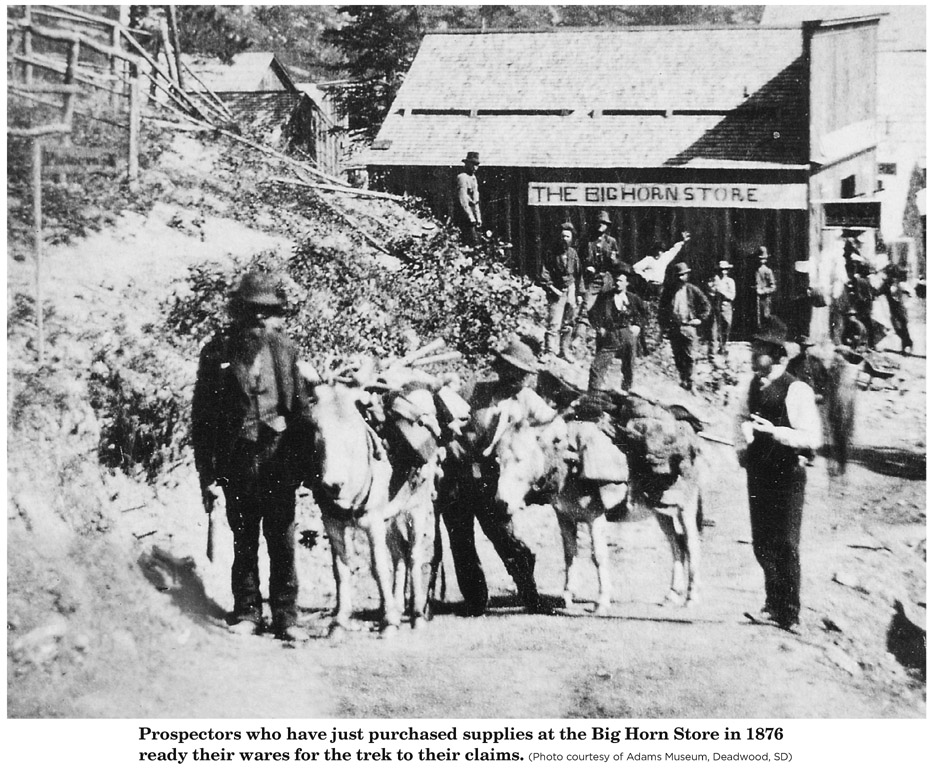
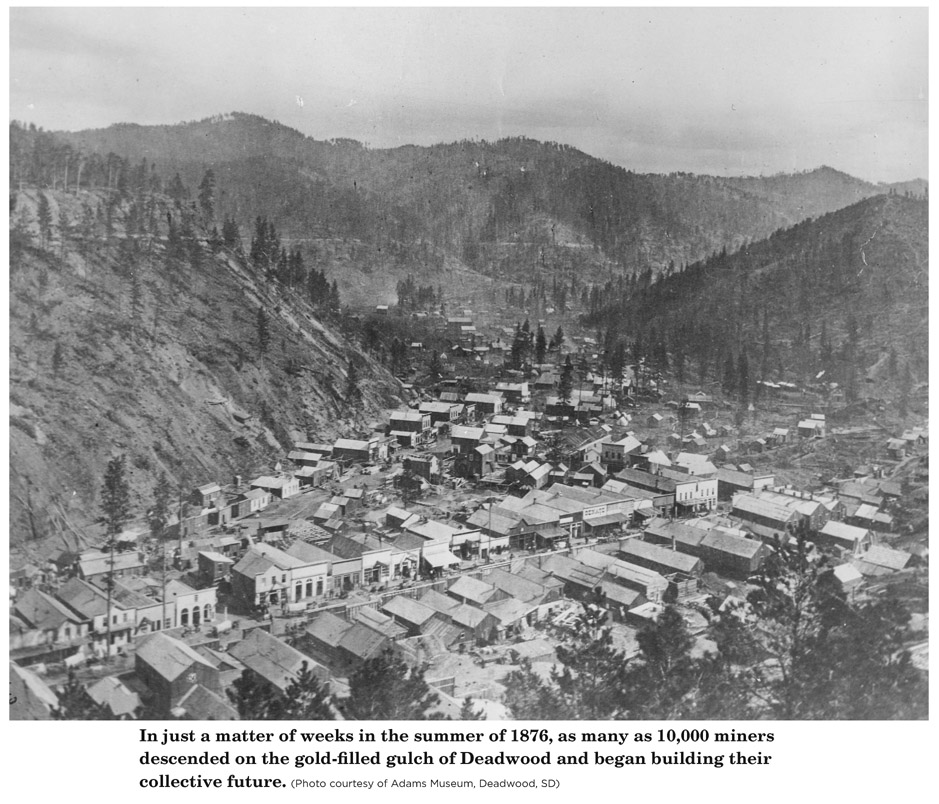
Finally, my fondest appreciation is extended to my wife, Nyla Griffith, a fellow writer and one of my few friends who understand that solitary pursuit and expression can often lead to the next grand adventure.
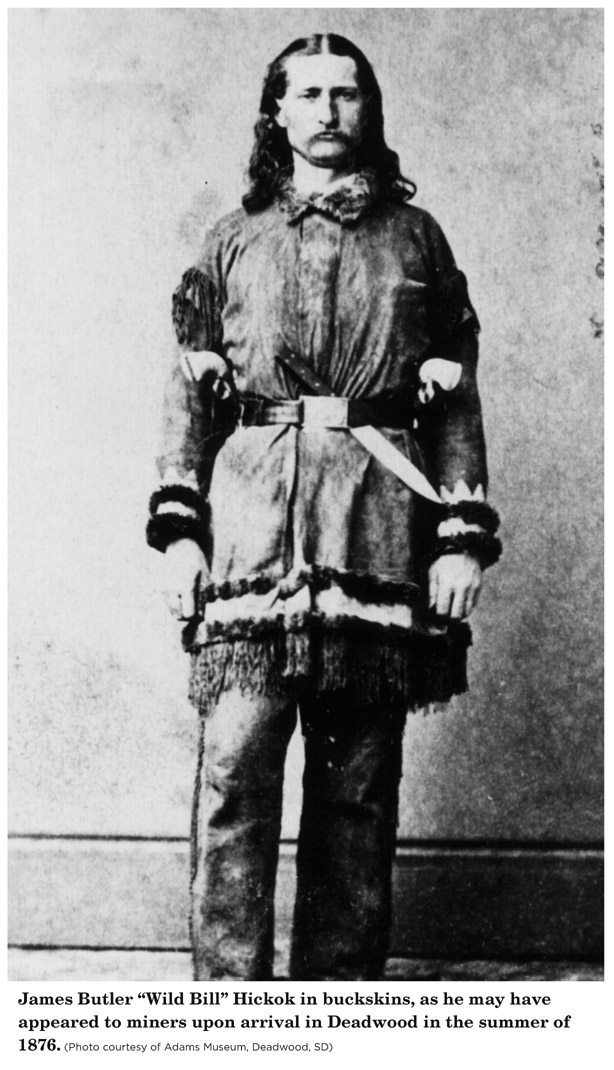
FROM GOLD IN THE BLACK HILLS
WATSON PARKER
1966

The product of a Black Hills dude ranch, noted historian Watson Parker earned his doctorate in Western American history from the University of Oklahoma in 1965 and penned Gold in the Black Hills the following year. He spent his career teaching at the University of WisconsinOshkosh, tending to the ancestral ranch near Hill City, researching Black Hills history, and becoming one of the regions most prolific authors.
Life in a Gold Rush Town, taken from Gold in the Black Hills, provides what might be regarded as the definitive historical account of life the way it really was in the early years of Deadwood Gulchhard work coupled with bad whiskey, bad breath, bad winters, mud that stuck to everything and everybody, hot baths, cold baths, dry vapor, sulphur, alcohol, and shower baths, all accompanied by the constant smell of wood smoke and the bone-chilling howl of Smokey Jones.
Methodically researched, comprehensive, and simply presented, Parkers work is generally regarded as the authority in its field. As the Journal of American History said of the work, Every aspect of the rush is presented: the early propaganda that inspired it, the actual movement of population to that isolated clump of mountains in western South Dakota, relations with the Indians, early mining methods, social and political connections, and bandits and frontier justice.
Put away his pick and shovel,
He will never prospect more;
Death has sluiced him from his trouble,
Panned him on the other shore.
The tale of the men who came to the Hills, of the way they lived, and of the amusements with which they whiled away their idle hours is a fascinating one. Obviously, it is easier to read their story now than it was to live it then, but, all things considered, it was a rewarding experience.
The first-comers were men, for few women and no ladies joined the rush to the early placer mines. Even Mrs. R. B. Fay, who arrived on the first coach to Deadwood, was referred to as the first lady passenger, a compliment which seems rather thoughtless inasmuch as there already was a well-patronized millinery shop in town. Nor were there many children in the Hills in comparison to the total population, judging by the small number attending the various schools.
Photographs taken during the gold rush show bearded miners in profusion, and the first impression is that the rushers were older men. A closer look, however, reveals youthful eyes behind the whiskers, and well it might: the median age in Deadwood was thirty, five years less than that of the adult population in the United States at the time. The following table, derived from the roster of the Society of Black Hills Pioneers, tells the story:
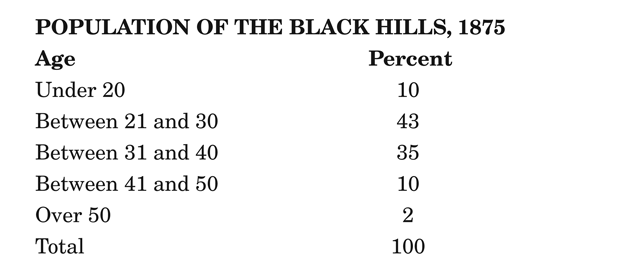
Most of these men came from the East; nearly two-fifths were born in New York, Pennsylvania, Ohio, Illinois, and Kentucky. Another two-fifths were born in foreign countries, a proportion which far exceeded even that of the West as a whole where only 25 percent of the population in 1870 was foreign-born. Of course, many who came to the Hills had originally joined gold rushes to California, Nevada, Colorado, and Montana, but then turned eastward when the new Dakota mines were discovered. Two other groups were prominent in the rush: the Chinese and the Negroes. The former came to Deadwood in sufficient numbers to form their own Chinatown in the heart of the city, from which incense wafted over the whole gulch. The latter, although less cohesive, staged at least one large picnic, on August 2, 1879, in honor of the freedom earlier achieved by their race in Santo Domingo.
Font size:
Interval:
Bookmark:
Similar books «Deadwood: The Best Writings on the Most Notorious Town in the West»
Look at similar books to Deadwood: The Best Writings on the Most Notorious Town in the West. We have selected literature similar in name and meaning in the hope of providing readers with more options to find new, interesting, not yet read works.
Discussion, reviews of the book Deadwood: The Best Writings on the Most Notorious Town in the West and just readers' own opinions. Leave your comments, write what you think about the work, its meaning or the main characters. Specify what exactly you liked and what you didn't like, and why you think so.

